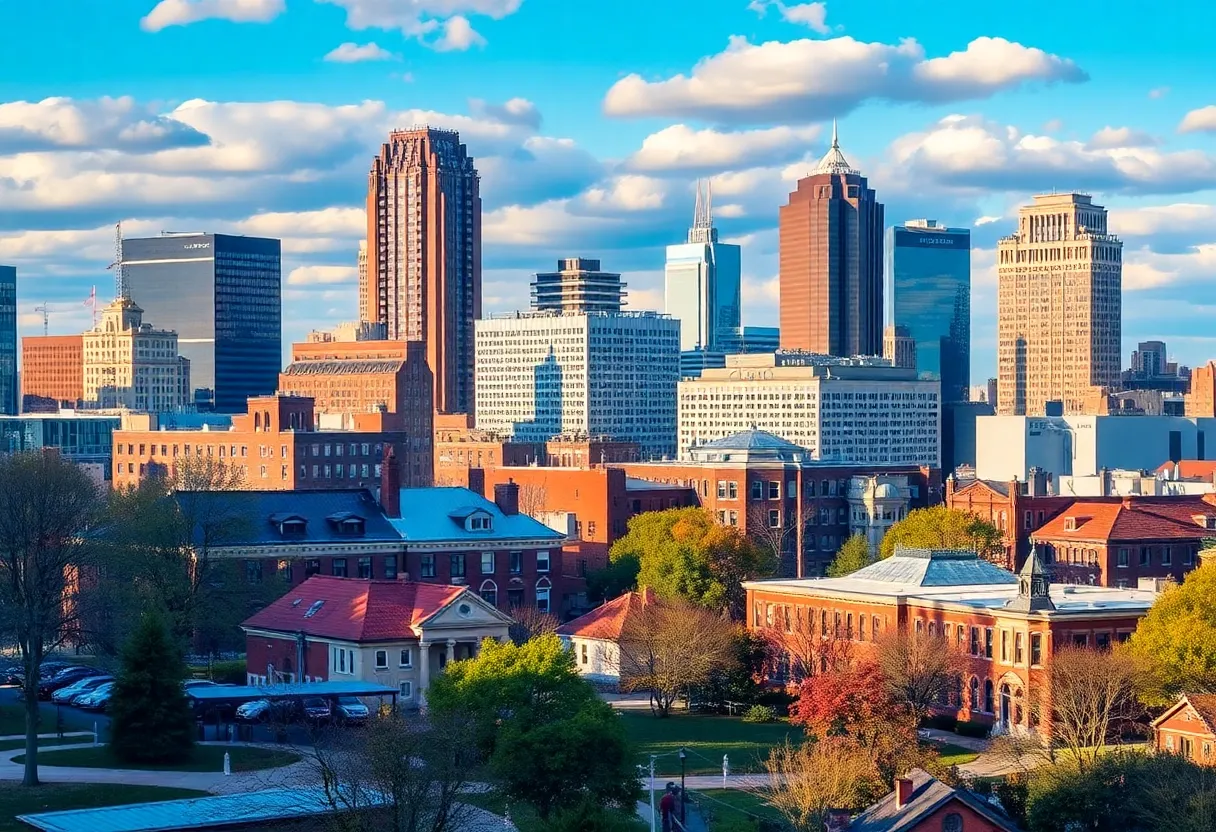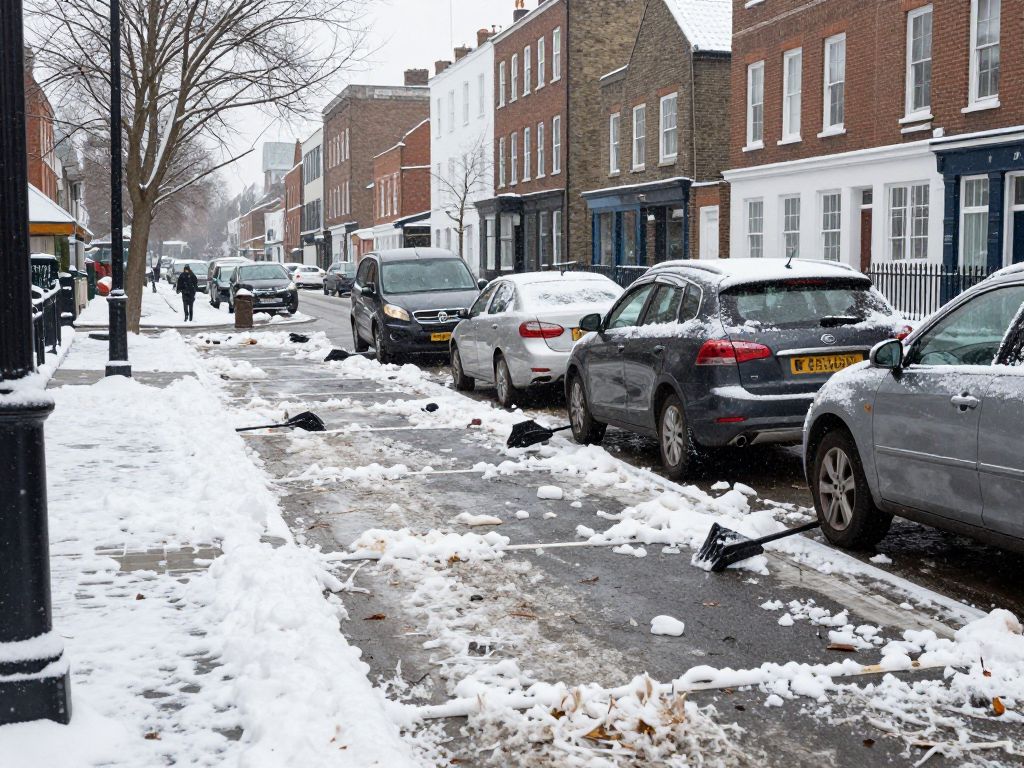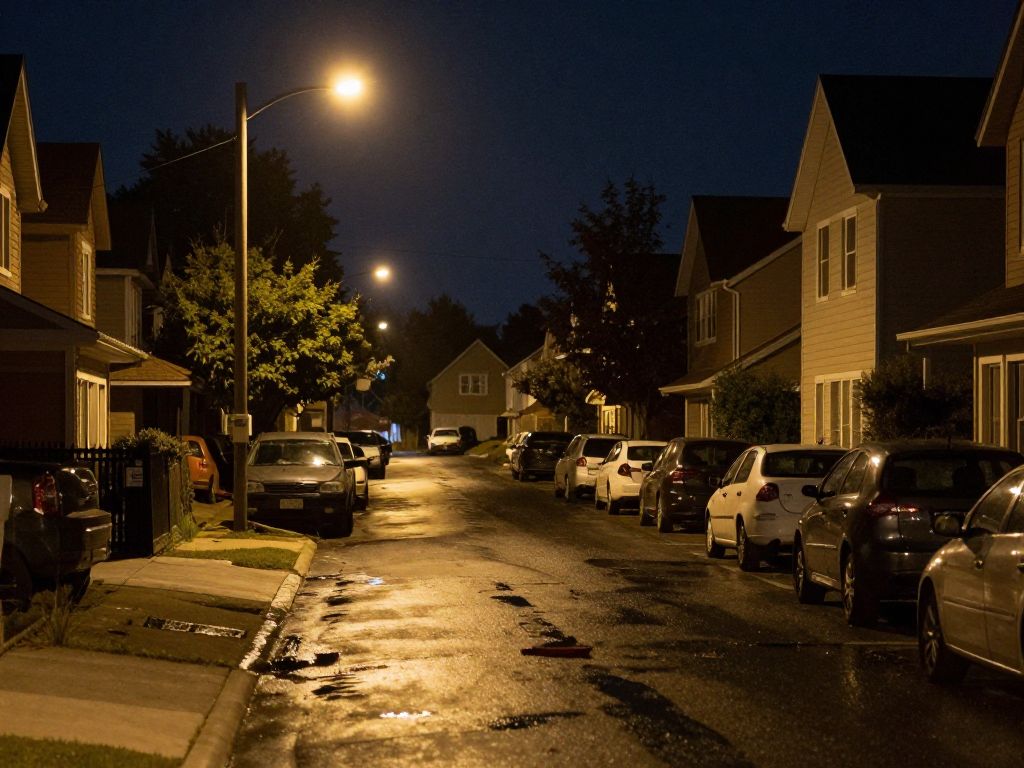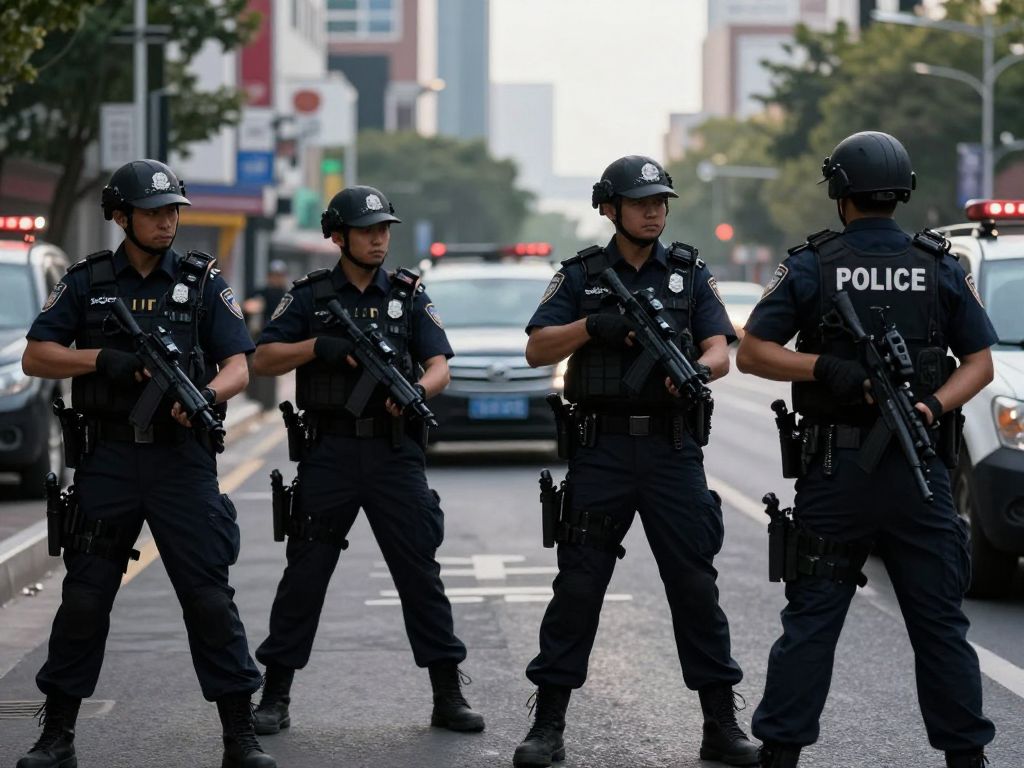Boston, September 25, 2025
News Summary
Boston Mayor Michelle Wu will run unopposed in her bid for a second four-year term. Her opponent, Domingos DaRosa, failed to secure the necessary votes for the November ballot. Wu, the city’s first Asian American and female mayor, has emphasized community engagement and faced challenges regarding her sanctuary city policies amidst conflicts with the federal government. The last unopposed mayoral election in Boston occurred in 1997. The focus now shifts to local issues such as affordable housing and public safety.
Boston
Boston Mayor Michelle Wu will run unopposed in her reelection bid for a second four-year term. The city’s election department announced that a challenger, Domingos DaRosa, did not secure the 3,000 votes required to qualify for the November ballot. Josh Kraft, expected to challenge Wu, dropped out of the race after finishing second in the preliminary election but trailing Wu significantly.
Supporting details
Wu is the first Asian American and first female mayor of Boston, having faced various challenges from the Trump administration over her policies. DaRosa, a community activist from Cape Verde, received only 2,409 votes in the preliminary election and blamed his lack of visibility and funding for the outcome. The last time a Boston mayor ran unopposed was in 1997 when Thomas Menino was the incumbent.
Wu expressed gratitude to the voters and emphasized her focus on community engagement and encouraging turnout for the upcoming election. Throughout her first term, Wu engaged in conflicts with the federal government over immigration issues, advocating for Boston as a sanctuary city. The U.S. Department of Justice has sued Wu and the city of Boston over its sanctuary city policies, claiming they interfere with immigration enforcement.
Wu accused President Trump of attempting to divert attention from his administration’s failures by targeting cities like Boston. During the preliminary election, the Department of Homeland Security announced the arrests of seven individuals as part of an operation against illegal immigration in Massachusetts.
Campaign dynamics and financing
Josh Kraft, who previously supported Wu during her campaign, contributed millions of his personal finances to fund his bid, setting spending records for a Boston mayoral preliminary election. Kraft criticized Wu on housing affordability, claiming she had not done enough to improve the city’s housing options, while also defending her tenure against Trump’s remarks. Political analysts noted the significant financial investments made by Kraft, which ultimately did not translate to political success.
DaRosa’s campaign focused on issues such as affordable housing, public safety improvements, and youth empowerment. There are ongoing discussions among voters about significant issues like local parks and housing affordability in anticipation of Wu’s second term.
What unopposed reelection means for Boston
With no qualified opponent on the November ballot, the immediate political contest is effectively decided, though the mayor and city officials continue outreach and voter engagement work. The campaign environment, including large personal contributions and federal legal challenges, has shaped public debate on topics such as housing, public safety, immigration policy, and city services. Officials and community groups indicate planning and policy work will continue through the transition into a potential second term.
Background and context
Boston’s preliminary election rules require a minimum number of votes for candidates to qualify for the November ballot; the threshold in this cycle was 3,000 votes. Historically, contested mayoral races have drawn large local interest and significant spending. The last unopposed mayoral run in the city occurred in 1997, when Thomas Menino was the incumbent.
Federal-city relations have been a recurring theme of Wu’s first term. The U.S. Department of Justice legal action and the Department of Homeland Security immigration operation in the region contributed to heightened attention on sanctuary policies and enforcement. City leaders note that legal proceedings and federal operations could influence local priorities and resource allocation as officials prepare for the work of a second term.
FAQ
Q: Will Michelle Wu run unopposed in the November election?
A: Boston Mayor Michelle Wu will run unopposed in her reelection bid for a second four-year term.
Q: Why is Michelle Wu running unopposed?
A: The city’s election department announced that a challenger, Domingos DaRosa, did not secure the 3,000 votes required to qualify for the November ballot.
Q: What happened to Josh Kraft’s campaign?
A: Josh Kraft, expected to challenge Wu, dropped out of the race after finishing second in the preliminary election but trailing Wu significantly.
Q: What is Domingos DaRosa’s preliminary vote total?
A: DaRosa, a community activist from Cape Verde, received only 2,409 votes in the preliminary election and blamed his lack of visibility and funding for the outcome.
Q: Has Boston had an unopposed mayoral run before?
A: The last time a Boston mayor ran unopposed was in 1997 when Thomas Menino was the incumbent.
Q: How has Wu described her priorities going into the next term?
A: Wu expressed gratitude to the voters and emphasized her focus on community engagement and encouraging turnout for the upcoming election.
Q: What federal conflicts has Wu faced?
A: Throughout her first term, Wu engaged in conflicts with the federal government over immigration issues, advocating for Boston as a sanctuary city.
Q: Has the federal government taken legal action against Boston?
A: The U.S. Department of Justice has sued Wu and the city of Boston over its sanctuary city policies, claiming they interfere with immigration enforcement.
Q: How did Wu respond to federal criticism?
A: Wu accused President Trump of attempting to divert attention from his administration’s failures by targeting cities like Boston.
Q: Were there any federal enforcement actions during the preliminary election?
A: During the preliminary election, the Department of Homeland Security announced the arrests of seven individuals as part of an operation against illegal immigration in Massachusetts.
Q: How much did Josh Kraft spend on his bid?
A: Josh Kraft, who previously supported Wu during her campaign, contributed millions of his personal finances to fund his bid, setting spending records for a Boston mayoral preliminary election.
Q: What criticisms did Kraft raise?
A: Kraft criticized Wu on housing affordability, claiming she had not done enough to improve the city’s housing options, while also defending her tenure against Trump’s remarks.
Q: What were DaRosa’s campaign priorities?
A: DaRosa’s campaign focused on issues such as affordable housing, public safety improvements, and youth empowerment.
Q: What do analysts say about the preliminary election spending?
A: Political analysts noted the significant financial investments made by Kraft, which ultimately did not translate to political success.
Q: What issues are voters discussing ahead of the next term?
A: There are ongoing discussions among voters about significant issues like local parks and housing affordability in anticipation of Wu’s second term.
{
“@context”: “https://schema.org”,
“@type”: “FAQPage”,
“mainEntity”: [
{
“@type”: “Question”,
“name”: “Will Michelle Wu run unopposed in the November election?”,
“acceptedAnswer”: {
“@type”: “Answer”,
“text”: “Boston Mayor Michelle Wu will run unopposed in her reelection bid for a second four-year term.”
}
},
{
“@type”: “Question”,
“name”: “Why is Michelle Wu running unopposed?”,
“acceptedAnswer”: {
“@type”: “Answer”,
“text”: “The city’s election department announced that a challenger, Domingos DaRosa, did not secure the 3,000 votes required to qualify for the November ballot.”
}
},
{
“@type”: “Question”,
“name”: “What happened to Josh Kraft’s campaign?”,
“acceptedAnswer”: {
“@type”: “Answer”,
“text”: “Josh Kraft, expected to challenge Wu, dropped out of the race after finishing second in the preliminary election but trailing Wu significantly.”
}
},
{
“@type”: “Question”,
“name”: “What is Domingos DaRosa’s preliminary vote total?”,
“acceptedAnswer”: {
“@type”: “Answer”,
“text”: “DaRosa, a community activist from Cape Verde, received only 2,409 votes in the preliminary election and blamed his lack of visibility and funding for the outcome.”
}
},
{
“@type”: “Question”,
“name”: “Has Boston had an unopposed mayoral run before?”,
“acceptedAnswer”: {
“@type”: “Answer”,
“text”: “The last time a Boston mayor ran unopposed was in 1997 when Thomas Menino was the incumbent.”
}
},
{
“@type”: “Question”,
“name”: “How has Wu described her priorities going into the next term?”,
“acceptedAnswer”: {
“@type”: “Answer”,
“text”: “Wu expressed gratitude to the voters and emphasized her focus on community engagement and encouraging turnout for the upcoming election.”
}
},
{
“@type”: “Question”,
“name”: “What federal conflicts has Wu faced?”,
“acceptedAnswer”: {
“@type”: “Answer”,
“text”: “Throughout her first term, Wu engaged in conflicts with the federal government over immigration issues, advocating for Boston as a sanctuary city.”
}
},
{
“@type”: “Question”,
“name”: “Has the federal government taken legal action against Boston?”,
“acceptedAnswer”: {
“@type”: “Answer”,
“text”: “The U.S. Department of Justice has sued Wu and the city of Boston over its sanctuary city policies, claiming they interfere with immigration enforcement.”
}
},
{
“@type”: “Question”,
“name”: “How did Wu respond to federal criticism?”,
“acceptedAnswer”: {
“@type”: “Answer”,
“text”: “Wu accused President Trump of attempting to divert attention from his administration’s failures by targeting cities like Boston.”
}
},
{
“@type”: “Question”,
“name”: “Were there any federal enforcement actions during the preliminary election?”,
“acceptedAnswer”: {
“@type”: “Answer”,
“text”: “During the preliminary election, the Department of Homeland Security announced the arrests of seven individuals as part of an operation against illegal immigration in Massachusetts.”
}
},
{
“@type”: “Question”,
“name”: “How much did Josh Kraft spend on his bid?”,
“acceptedAnswer”: {
“@type”: “Answer”,
“text”: “Josh Kraft, who previously supported Wu during her campaign, contributed millions of his personal finances to fund his bid, setting spending records for a Boston mayoral preliminary election.”
}
},
{
“@type”: “Question”,
“name”: “What criticisms did Kraft raise?”,
“acceptedAnswer”: {
“@type”: “Answer”,
“text”: “Kraft criticized Wu on housing affordability, claiming she had not done enough to improve the city’s housing options, while also defending her tenure against Trump’s remarks.”
}
},
{
“@type”: “Question”,
“name”: “What were DaRosa’s campaign priorities?”,
“acceptedAnswer”: {
“@type”: “Answer”,
“text”: “DaRosa’s campaign focused on issues such as affordable housing, public safety improvements, and youth empowerment.”
}
},
{
“@type”: “Question”,
“name”: “What do analysts say about the preliminary election spending?”,
“acceptedAnswer”: {
“@type”: “Answer”,
“text”: “Political analysts noted the significant financial investments made by Kraft, which ultimately did not translate to political success.”
}
},
{
“@type”: “Question”,
“name”: “What issues are voters discussing ahead of the next term?”,
“acceptedAnswer”: {
“@type”: “Answer”,
“text”: “There are ongoing discussions among voters about significant issues like local parks and housing affordability in anticipation of Wu’s second term.”
}
}
]
}
Quick reference table
| Item | Detail |
|---|---|
| Mayor | Michelle Wu |
| Election status | Will run unopposed in her reelection bid for a second four-year term |
| Challenger who failed to qualify | Domingos DaRosa (did not secure the 3,000 votes required to qualify) |
| DaRosa preliminary votes | 2,409 |
| Required votes to qualify | 3,000 |
| Other notable candidate | Josh Kraft (dropped out after finishing second) |
| Kraft spending | Contributed millions of his personal finances; set spending records for a Boston mayoral preliminary election |
| Federal actions | U.S. Department of Justice sued Wu and the city of Boston over sanctuary city policies; Department of Homeland Security announced the arrests of seven individuals |
| Historical note | The last time a Boston mayor ran unopposed was in 1997 when Thomas Menino was the incumbent |
| Top local issues | Affordable housing, public safety, youth empowerment, and local parks |
Deeper Dive: News & Info About This Topic
HERE Resources
Domingos DaRosa Fails to Qualify for General Election Ballot
Boston City Council Reviews Stricter Background Check Policies
Mayor Michelle Wu Secures Reelection Victory in Boston
Boston Housing Market: Achieving Homeownership Amid Rising Prices
Boston Settles for $150,000 with Wrongly Accused Men
How To Contact Boston City Council Members
Somerville Community Updates: Local Events, Development, And School News
Michelle Wu Runs Unopposed in Boston Mayoral Reelection
Boston Mayor Michelle Wu Runs Unopposed for Reelection
BPDA Approves 204-Unit Housing Development in Hyde Park
Additional Resources
- AP News: Michelle Wu Boston Mayor
- Boston 25 News: Mayor Wu Unopposed
- Turn to 10 News: Wu Unopposed Reelection
- WCVB: Josh Kraft’s Campaign
- Yakima Herald: Wu’s Reelection Effort

Author: STAFF HERE BOSTON WRITER
The BOSTON STAFF WRITER represents the experienced team at HEREBoston.com, your go-to source for actionable local news and information in Boston, Suffolk County, and beyond. Specializing in "news you can use," we cover essential topics like product reviews for personal and business needs, local business directories, politics, real estate trends, neighborhood insights, and state news affecting the area—with deep expertise drawn from years of dedicated reporting and strong community input, including local press releases and business updates. We deliver top reporting on high-value events such as Boston Marathon, Head of the Charles Regatta, and Boston Harborfest. Our coverage extends to key organizations like the Greater Boston Chamber of Commerce and Associated Industries of Massachusetts, plus leading businesses in finance, biotech, and insurance that power the local economy such as Fidelity Investments, Biogen, and Liberty Mutual Insurance. As part of the broader HERE network, we provide comprehensive, credible insights into Massachusetts's dynamic landscape.





